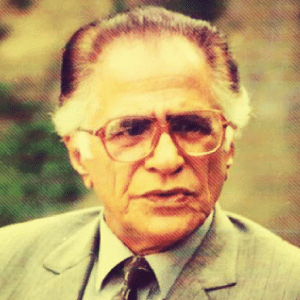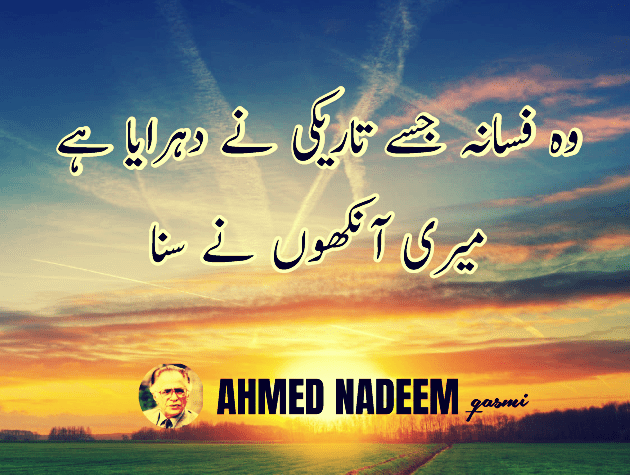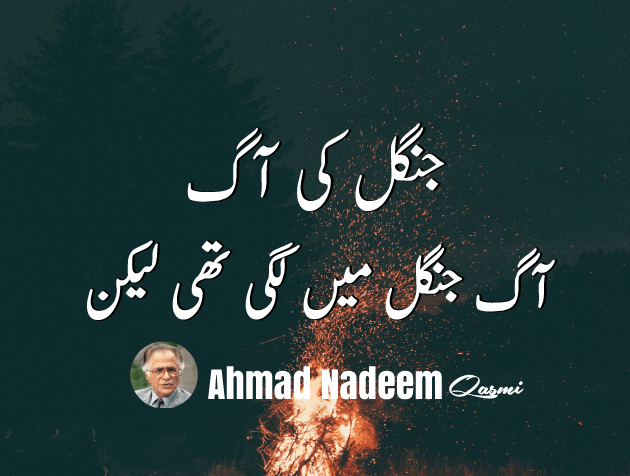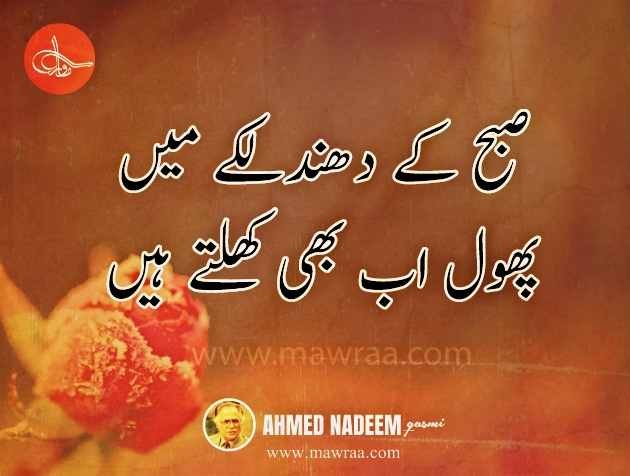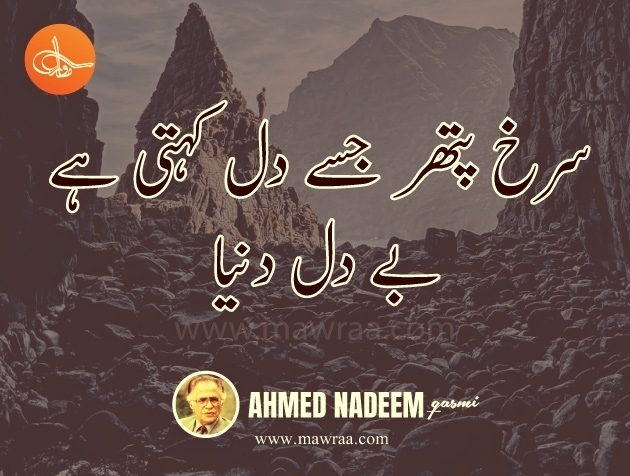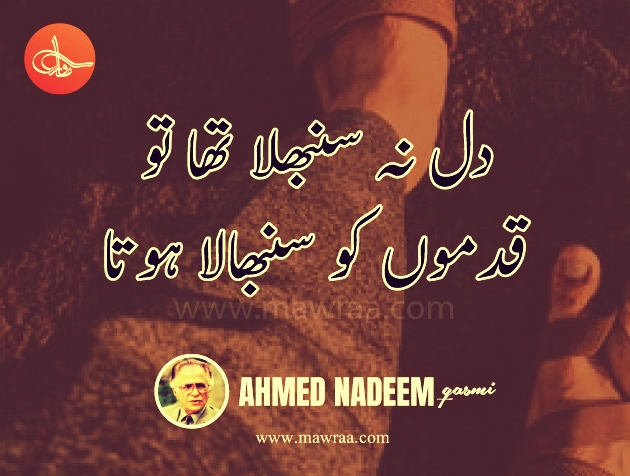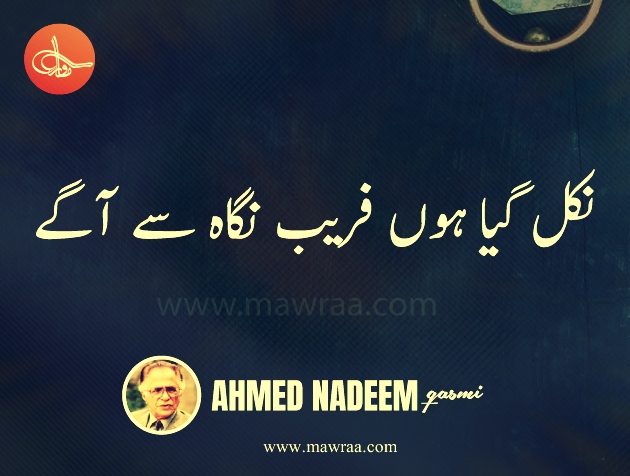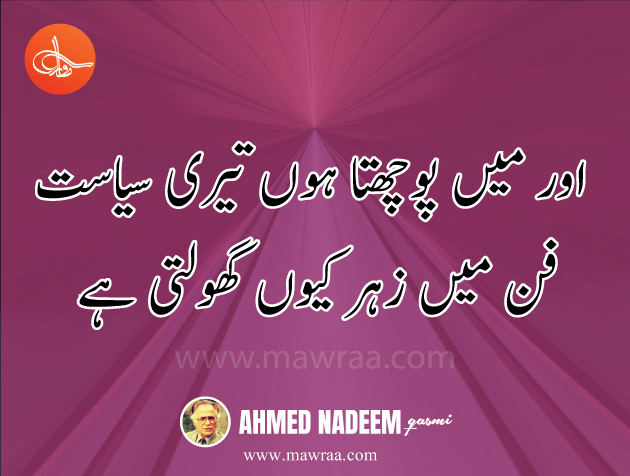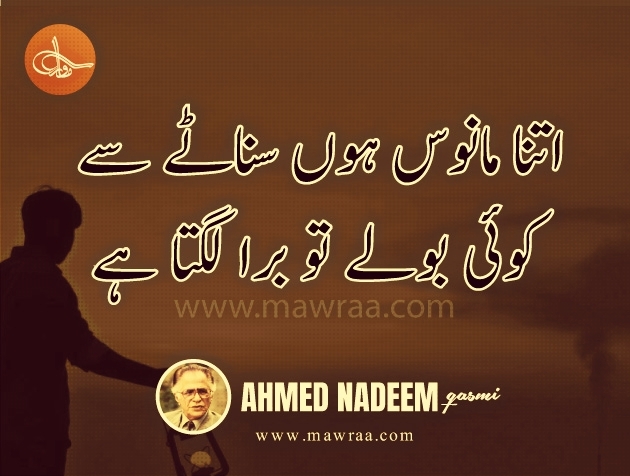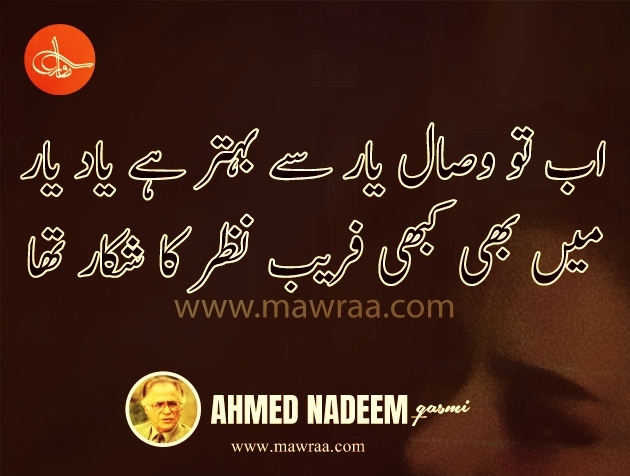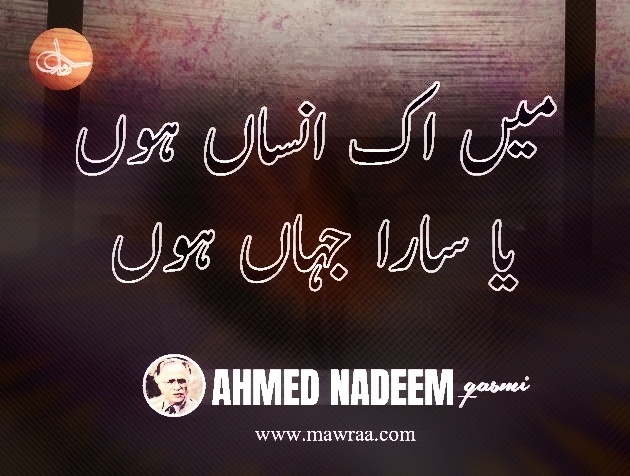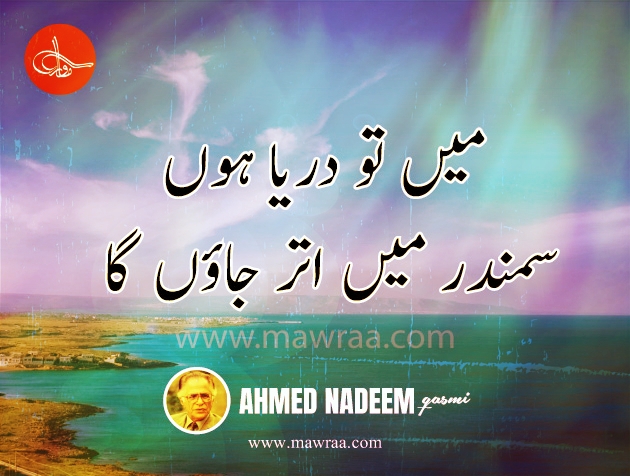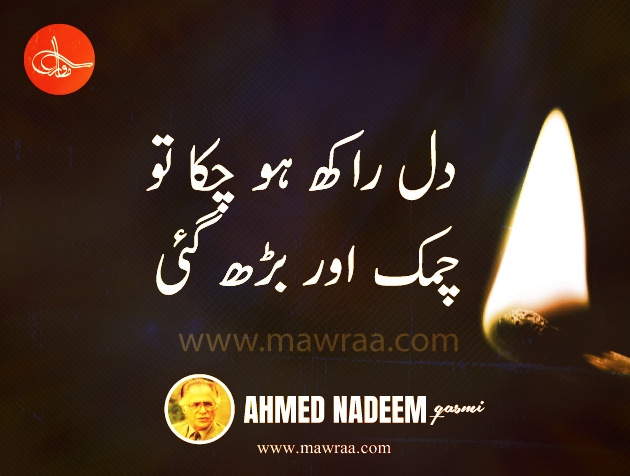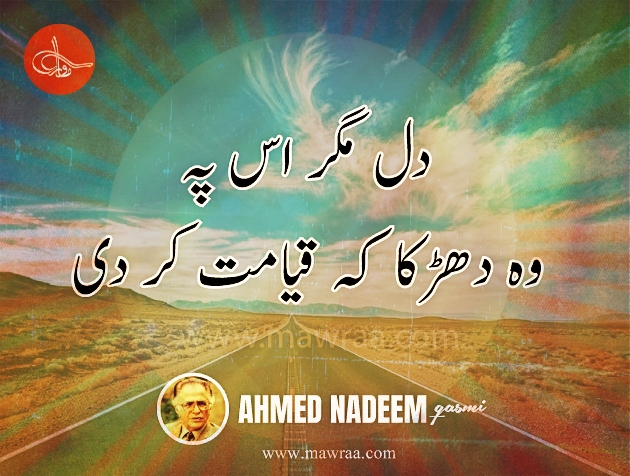Introduction
Ahmad Nadeem Qasmi Pakistani was a poet, playwright, journalist, and critic of literature. He was born in Anga, British India, in 1916, and died in Lahore, Pakistan, in 2006. In Pakistan, Qasmi is regarded as one of the greatest poets of the 20th century and is well renowned for his contributions to the literature of Urdu. He was a prolific writer who mixed old poetic forms with a contemporary perspective in his writings.
Early Life and Education
Ahmad Nadeem Qasmi was born On November 20, 1916, in the village of Anga, which is now the Indian state of Rajasthan. Ahmad Nadeem Qasmi gained Early education in his village, and then attended Aligarh Muslim University in India to further his studies. After the partition, he moved to Lahore, Pakistan, where he attended the Government College to finish his schooling. From a young age, he showed a strong interest in literature and poetry and was a committed student. He worked as an editor and journalist for numerous publications after completing his education, including “Daily Imroze” and “Daily Aj Kal.” Throughout his lifetime, he wrote and published poems, and he established himself as one of the foremost figures in Urdu poetry.
A Career in Literature Ahmad Nadeem Qasmi
Throughout his lengthy literary career, Ahmad Nadeem Qasmi produced a substantial number of Urdu plays, poetry, and literary criticism. He started composing poetry at a young age, and in 1946, he released his first collection, “Afsane.” The collection garnered favorable reviews and made Qasmi a recognized poet. He produced a number of other poetry volumes throughout the years, including “Jareeda” and “Dhoop Kinare.”
In addition to his poetry, Qasmi was well-known for his plays. He wrote several plays, notably “Anjuman,” which received a lot of praise for its innovative and perceptive depiction of interpersonal relationships. Along with several articles and short tales, he was also known for his respected and widely read the literary critique.
Famous Works of Ahmad Nadeem Qasmi
Ahmad Nadeem Qasmi was a prolific author who produced works in a variety of genres, such as plays, poetry, and literary criticism. His best-known works include the following:
Afsane
Qasmi’s debut collection of poems, “Afsane,” made him known as a gifted poet. His contemporary sensibility and avant-garde flair are reflected in the collection.
Anjuman
The drama “Anjuman” by Qasmi is regarded as one of his most significant creations. It presents interpersonal relationships in a creative and perceptive manner.
Chiragh Talay
The well-known poem “Chiragh Talay” by Qasmi is recognized as one of his finest creations. His liberal values and worldview are reflected in the poem.
Jareeda
Another collection of poems by Qasmi, “Jareeda,” demonstrates how he can incorporate modern sensibility into ancient poetic forms.
Dhoop Kinare
In “Dhoop Kinare,” a collection of poems by Qasmi, he expresses his admiration for nature and sense of awe at the world.
Famous Poetry
Chiragh Talay
The well-known poetry “Chiragh Talay” embodies Qasmi’s liberal values and worldview. The poem is frequently cited as one of his finest creations.
Gul-o-Bulbul
“Gul-o-Bulbul” is a love poem by Qasmi that captures his admiration for the natural world and his appreciation of its beauty.
Yaad
The melancholy poetry “Yaad” captures Qasmi’s sense of longing and sorrow. The poem is regarded as one of his most emotionally charged compositions.
Shehr-e-Afsos
This moving poetry, “Shehr-e-Afsos,” captures Qasmi’s sense of despair and loss. One of his most touching poems is often acknowledged as being this one.
Tum Apni Zulfon Ko
In his love poetry “Tum Apni Zulfon Ko,” Qasmi expresses his awe at his fiance’s beauty. One of his most romantic poems, according to many critics, is this one.
Awards and Recognitions
Ahmad Nadeem Qasmi was a renowned author whose works have received numerous honors and awards. His most prominent honors and commendations include:
Pride of Performance award
The Pride of Performance Award, the highest literary honor bestowed by the Pakistani government, was handed to Qasmi in appreciation for his contributions to Pakistani literature.
Adamjee Literary AwardThe famous Adamjee Literary Award is presented to authors who have significantly improved Pakistani literature. This honor was given to Qasmi in appreciation of his accomplishments in plays, poetry, and literary criticism.
Urdu Academy Award
Qasmi received the Urdu Academy Award in appreciation of his services to Urdu poetry and literature.
Pakistan Academy of Letters Award
Qasmi received this honor for his contributions to Pakistani literature.
Social and Political Views
The progressive outlook and humanistic, libertarian, and egalitarian beliefs of Ahmad Nadeem Qasmi were well known. His commitment to social and political themes and current sensibility permeated all of Qasmi’s works throughout his career.
His most notable opinions include the following:
Humanism – Qasmi’s works reflect his belief in the inherent worth and dignity of every human being. He was a fervent supporter of human rights, and he used his writing to draw attention to problems like injustice, inequality, and poverty.
Freedom: Qasmi was a fervent supporter of the right to freedom of expression, and his works are evidence of his dedication to this idea. He advocated for liberal values and challenged authority through his writing because he believed that freedom of expression was crucial for a vibrant society.
Equality – All people should have equality, and Qasmi’s works demonstrate this belief. He was a fervent supporter of women’s rights, and through his writing, he worked to advance gender equality and subvert patriarchal traditions.
Due to his opinions and convictions, Qasmi became a key figure in Pakistani literature as well as the country’s intellectual and cultural life. His contributions to society in Pakistan continue to have an impact, and new generations of writers and thinkers are continually motivated by his works.
Later Life and Death
Qasmi spent a large portion of his later years in Lahore, Pakistan, where he wrote and published works up to his passing. On July 10, 2006, he died at the age of 89.
During his lifetime, Qasmi’s contributions to Urdu writing were widely acknowledged, and he received several awards and honors, including the Pride of Performance award from the Pakistani government in 1968. He is still regarded as one of the most significant and revered authors in the annals of Urdu literature.
Conclusion
Qasmi produced an enormous corpus of writing throughout the course of his life, including poetry, short stories, essays, and critical works, which brought him considerable acclaim and respect in the field of Urdu literature. He was well-known for his wit and humor and, with his distinctive writing style and thought-provoking works, made a substantial addition to Urdu literature. Qasmi’s literary accomplishments have left a legacy that continues to motivate new generations.


